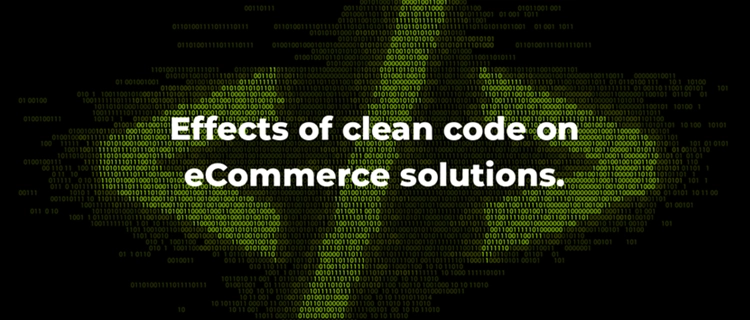
Clean coding in eCommerce. Be it the core code of one of the most popular eCommerce in the world, serving over half a million merchants worldwide. A built-from-scratch B2B startup, a prominent online fashion retailer, or a global payment unicorn, Invertus has earned a reputation for delivering clean, highly optimized, and solid code. Efficient, highly scalable, and interoperable up to the utmost degree of perfection.
The ultimate goal of every software developer is not the code for the sake of it but building a high-value solution that earns and performs. Code has to be simple, not complex.
Delivering clean code is not about the superhuman powers of individual developers but the consistent efforts by a values-driven team, efficient project management practices, and transparent processes.
Writing clean code makes all the difference in the software industry. eCommerce isn’t different. Numerous startups and companies had to shut down because of messy code that brought them trouble while scaling up or operating under increased load.
Most of the developers’ time goes to reading, not writing the code. Trying to understand it, reviewing it, and deciding what should be improved to make it more user-friendly and quicker. Eventually, the ultimate goal of every software developer is not the code for the sake of it but to build a high-value solution that earns and performs. Code has to be simple, not complex. Using founded coding principles is necessary.
To become more efficient, developers improve the readability of the code daily. The documentation they write and tools they pick, packages, and technologies that follow the same principles help state the final and working solutions. So, the clean code feeds on developers’ time, increasing the initial cost. Yet make no mistake, although your initial spend may be on the higher side, the true benefit comes while scaling up, migrating to a new version, or rolling new features out. With better readability, you’ll save a fortune and add value to your business, while unnecessary complexity will bring a high lifetime cost.
Rubbish code will negatively affect every part of the product and solution. When your eCommerce site is slow, you may think more server capacity, additional space, scalability, and cache are needed. When load times are high and conversions are dropping, code efficiency isn’t everybody’s primary concern. However, with clean and efficient code, you reduce the need for scalability.
The same goes for break-ups, bugs, and errors. In those situations, one should opt for efficient, quality-based, and clean code at the core of your solution instead of more brainpower. Which never comes for free.
Building an exceptional and well-developed clean coded solution in eCommerce involves removing redundancies and keeping close to customer requirements. It is under the responsibility and simplicity of the code to be written.
As an IT solutions provider, our craft is to write as efficient and clean code as possible. We had an experience of reducing the number of code lines in In the process of refactoring by half or even threefold without losing any functionality. How did we manage that? With corporate values in accord with the personal ones of each team member, we keep efficiency at the heart of our everyday practices. Believe it or not, the cultural fit between the internal customer’s team and the external one matters too. It is of particular significance as we often deliver the fruits of our work to our clients at ‘their key moment of truth.
The independent agency is most often recruited when the partner’s business is on the brink of change. We help them enter new markets, refactor the legacy code, move clients’ eCommerce sites to new platforms, or even from a platform-based solution to a tailored-made one.